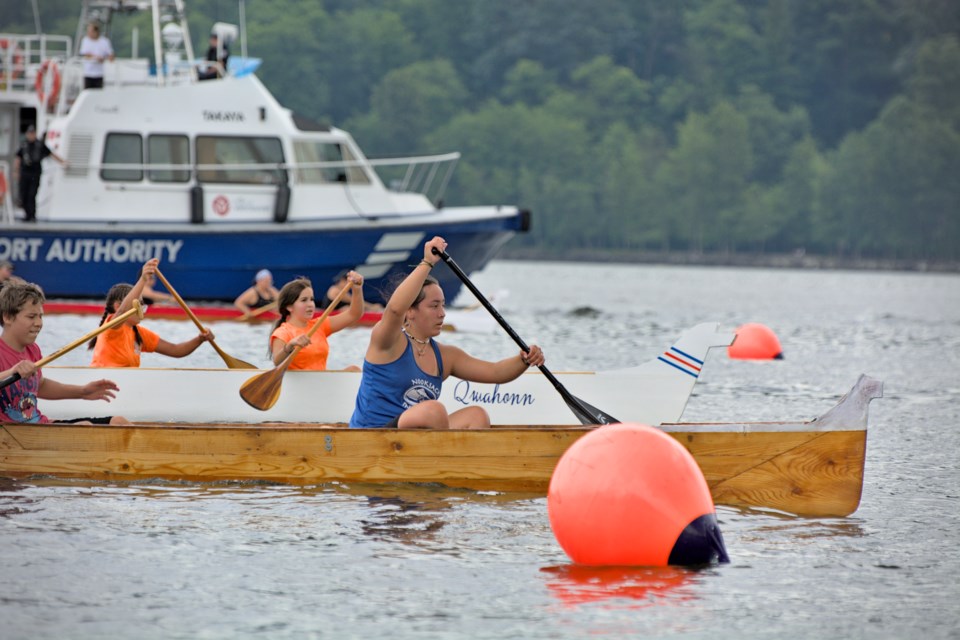When an Indigenous canoe puller dips their paddle into səl̓ilw̓ət (Burrard Inlet), they’re connecting to thousands of years of ancestral stewardship over the regional waterways.
Over the weekend, Tsleil-Waututh Nation held its first Whey-ah-Wichen Canoe Festival after the event had to be called off for two years during the height of the pandemic. First Nations gathered and camped at Whey-ah-Wichen/Cates Park from Coast Salish territory across the Lower Mainland, Vancouver Island and Washington State.
For Indigenous participants and spectators, the races mark a return to community gathering, a practice that’s both sportive as it is an act of healing, and a reminder to all that the waters must be protected if they’re to be a lasting resource for present and future generations.
TWN Chief Jen Thomas said not being able to carry on their traditions really disrupted their lives.
“Some may look at it as, ‘How is it culture?’ but the gathering of our people and the Nations is the biggest, important thing,” she said. “We connect with our families again, we get to meet new family members, or just the hugging – it’s a big part of our lives.”
Thomas also said the event is a sombre reminder of how pollution affects her community, given that the water has always been such a big part of their well-being.
“My last race I raced here was in 2016 and there was the biggest oil tanker out there. Our canoes were tiny in comparison,” she added.
But Thomas also noted the positive impacts of Tsleil-Waututh efforts to restore the inlet piece by piece. During another recent set of races, whales swam right through the canoes.
“The whales started to come back because we put kelp up Indian Arm,” she said, “Herons started to return.”
Another project involves putting clam beds back in the water. They haven't been able to harvest clams for over 30 years, despite being a historically abundant resource in the area.
Gabriel George – director of treaty lands and resources for Tsleil-Waututh Nation – asks that people of settler ancestry be allies in their conservation work.
“The standards we set are higher than the government, and I think that's something that would benefit all Vancouverites, all British Columbians, all Canadians and the world,” he said, pointing to research that’s established the health of local waterways before colonization.
“If we could collectively work to getting this back to even, say, 1930 levels, it'll be worth way more than any [shorter-term] economy that can be created,” George continued.
Canoeing helped TWN war veterans survive
Racing in the men’s-11 event, he noted that canoeing isn’t just a sport. It’s a way of life. It’s a spiritual practice.
“When you look at reconciliation, I think more Canadians realize the damage that has happened to our people, as a result of residential schools, as a result of colonization,” he said. “Well, this is one of the big antidotes.”
Canoeing as medicine has a long history.
Tsleil-Waututh Nation Coun. Tewalewet (Deanna George) said that the discipline required to be a puller helped war veterans survive when other treatments weren’t available.
Her uncle Herbert (Paddy) George was on the 1947 championship team. “He said that's what saved them,” Deanna George explained.
Part of it is the intense discipline required, which involves watching your diet, jogging daily and six-months' training. Part of the healing is just returning home.
“We always say, ‘This is where our ancestors live.’ So when you're out in the water, they're with you. They're helping you, they’re pushing you, they’re making you strive to do your best,” she said.
"That, to me, is human."



